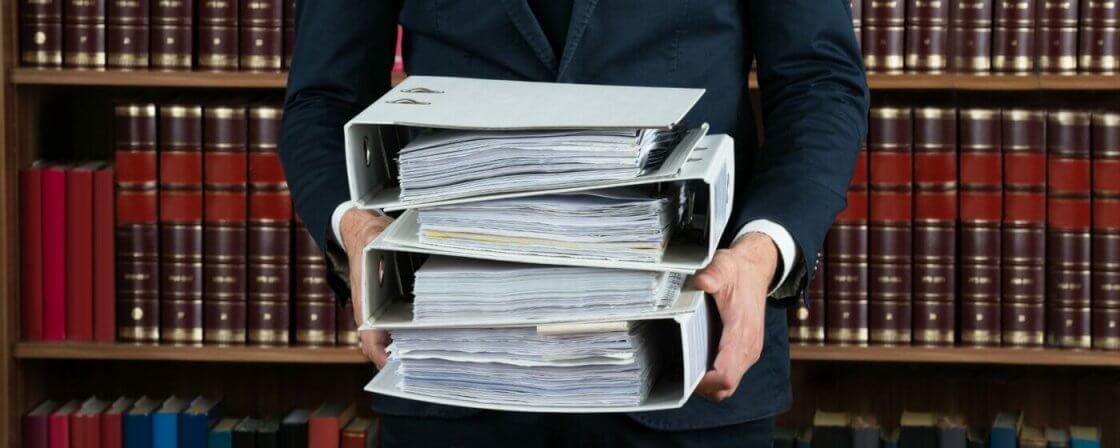The costs of court proceedings consist of a number of items: the court fee is just one of them. Legal expenses are usually another. Sometimes the costs of expert reports, witnesses, etc. must also be taken into account. The unsuccessful party bears its own costs (it will not be reimbursed) and usually has to reimburse the other party. If partially successful, the court will order each party to pay a proportionate share of the costs.
Are you solving a similar problem?
Need help with filing a lawsuit or representing yourself in court?
Whether the dispute is just beginning or the proceedings are well underway, we will be happy to help you with everything. We will conduct a thorough analysis, assess your realistic chances and suggest a way forward. All this within 48 hours of ordering our services.
I want to consult
- When you order, you know what you will get and how much it will cost.
- We handle everything online or in person at one of our 6 offices.
- We handle 8 out of 10 requests within 2 working days.
- We have specialists for every field of law.
Reimbursement of legal costs
The obligation to reimburse costs arises under the Civil Procedure Code. The successful party is entitled to reimbursement of the costs of legal representation and other legal expenses (of course, if the proceedings are not contentious, each party must bear his own costs). An exception may be made for some unnecessary costs which, for example, are caused by the victor of the dispute through his/her conduct.
However, everything is governed by the decision of the court, which may not award costs in certain cases, even if it is the winner of the dispute.
Reimbursement of costs is awarded only when the representation is by a lawyer registered with the Czech Bar Association. A friend who has studied law and makes his living as a corporate lawyer can of course give you legal advice, but he cannot represent you in court. However, if you have no legal representation and have not documented the amount of your expenses, the court will award you compensation in a lump sum determined by decree.
Although the lawyer’s fee is contractual, the court will award you compensation for your legal representation according to the so-called lawyer’s tariff, i.e. the Decree on lawyers’ fees and lawyers’ remuneration for legal services (lawyer’s tariff).
Example of Mr Janoska:
Mr Jánoška agreed with his lawyer on a fee for representation according to the Lawyer’s Tariff. The final amount was CZK 12 000. He prevailed in the dispute and the court awarded costs in that amount. He therefore neither earned nor lost money on the compensation. However, if he had agreed on a higher price, e.g. CZK 16 000, the CZK 4 000 would not have been recovered as costs. If, on the other hand, he had negotiated a lower price, for example CZK 10 000, he would have earned an extra CZK 2 000 in costs.
The dispute would end in a ‘tie’ as regards costs
If both parties are successful “half and half”, i.e. if the success and failure on both sides is approximately equal, the costs are divided between them in the proportion in which they are successful.
Court fees and how to pay them
Most proceedings in court can only be started after court fees have been paid. The court fee should be paid at the time the action is brought. Its amount depends on the nature of the value of the subject matter of the dispute. The tariff is set by the Court Fees Act.
The fee can be paid into the court’s account, in cash or by stamps. If you do not pay, the court will invite you to do so and set an alternative deadline for payment. At the same time, you will be advised of the consequences of non-payment (discontinuance of the proceedings) and exceptions (non-discontinuance of the proceedings), as well as the possibility of applying for exemption from court fees.
The example of Mr. Mark
Mr Marek sued for damages of CZK 120,000. He paid a fee according to the fee schedule of 5% of the amount, i.e. CZK 6,000.
There is a fee for a petition for the commencement of civil court proceedings involving a pecuniary benefit:
- (a) up to CZK 20 000 – CZK 1 000
- b) for an amount exceeding CZK 20 000 up to CZK 40 000 000 – 5 % of that amount
How to obtain exemption from court fees?
First of all, two situations must be distinguished:
- proceedings which are by their nature and directly by law exempt from court fees and
- a situation where you apply for exemption from court fees and the court decides on the application.
The law exempts certain proceedings from the fee – in particular proceedings in the public interest (e.g. child protection, social security, electoral proceedings, guardianship and custody cases, but also deprivation of legal capacity or inheritance), certain acts (e.g. drafting a petition for the custody of minors, petition for interim measures) and persons (petitioners in listed proceedings, aliens in international protection proceedings, unwed mothers in maintenance and contribution to the costs of pregnancy and childbirth, etc.). You do not need to apply for such exemption.
However, upon request, the court may also partially exempt a particular party from court fees on the grounds of his/her difficult social situation (in particular lack of assets), if it is not clear at first sight that he/she cannot succeed (he/she is suing without any grounds, claiming a non-existent right, etc.). It follows from a number of judgments of the Supreme Court of the Czech Republic that a party to proceedings must not be prevented from exercising or defending his right in court simply because of his adverse financial situation.
According to the law, the court may, on the application of a party to the proceedings (appellant, appellee or appellant), grant partial exemption from court fees. This is only if the party’s circumstances justify it and if it is not arbitrary or manifestly unsuccessful in exercising or defending the right.
However, full exemption from court fees may be granted only exceptionally if there are particularly compelling reasons for doing so. You, the applicant, must prove that you have insufficient funds to pay the court fees. You can state the facts relevant to the exemption directly in your application. If you do not do so, the court will ask you to do so. This is usually done by asking you to fill in the form ‘Certificate of means and earnings’ sent by the court.
You will indicate your income from employment or similar employment, business, social benefits or other sources. You are also expected to state the value of personal property and other relevant circumstances. If you are in business, account will be taken not only of your factual circumstances at the time of the application but also, for example, of any deliberate disposals of assets before the court proceedings.
In addition to your income and assets, the court will also take into account your ability to raise funds, as well as the consequences of any court fees.
If the court concludes that your circumstances do not allow you to pay the court fees, it should exempt you from paying the court fees. It may do so in full, or only in part, for part of the proceedings or only for certain acts.
Arbitrary or unsuccessful application of a right
In deciding whether to grant you exemption from court fees, the court will therefore primarily assess your objective ability to pay the court fees in the particular case. If there is a reason for exemption, the court must also examine whether there is an arbitrary or manifestly unsuccessful assertion or defence of a right.
The test is therefore whether you are not asserting your claimed right or whether you are asserting the defence in a wholly arbitrary manner. This could be a so-called chicanery claim, for example, or a claim that is completely nonsensically worded. In such a case, relief cannot be granted.




